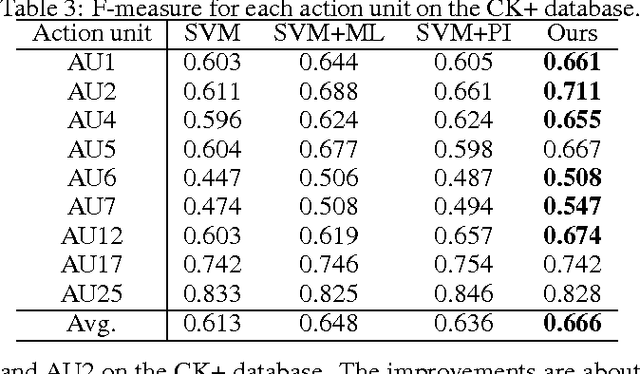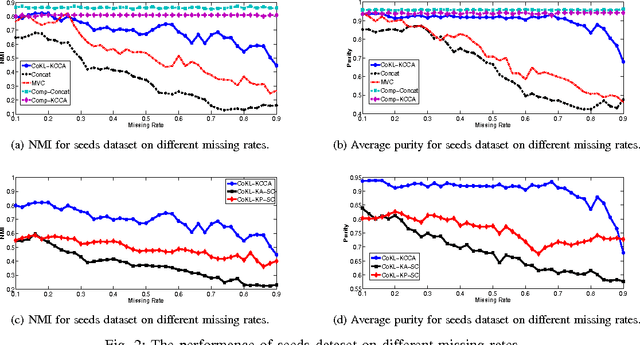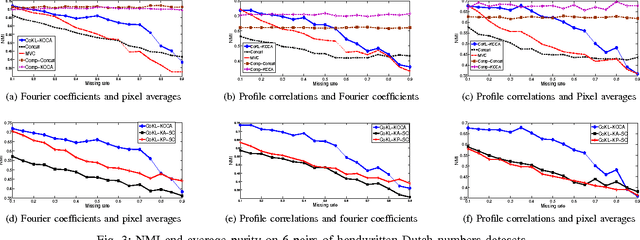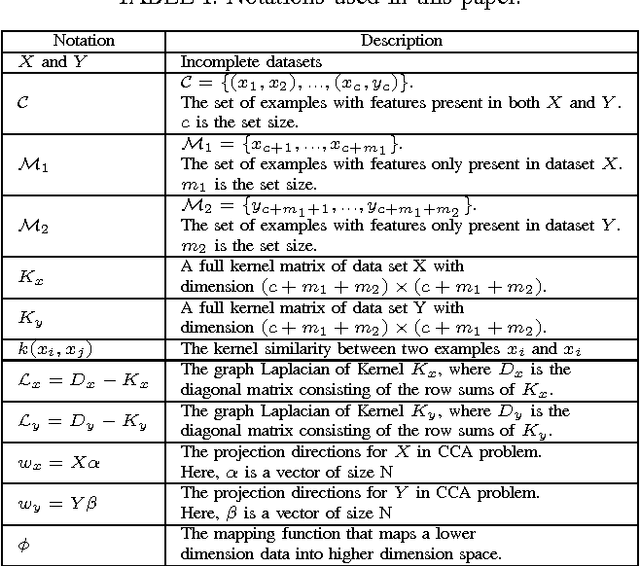Xiaoxiao Shi
University of Illinois at Chicago
Learning with Privileged Information for Multi-Label Classification
Mar 29, 2017



Abstract:In this paper, we propose a novel approach for learning multi-label classifiers with the help of privileged information. Specifically, we use similarity constraints to capture the relationship between available information and privileged information, and use ranking constraints to capture the dependencies among multiple labels. By integrating similarity constraints and ranking constraints into the learning process of classifiers, the privileged information and the dependencies among multiple labels are exploited to construct better classifiers during training. A maximum margin classifier is adopted, and an efficient learning algorithm of the proposed method is also developed. We evaluate the proposed method on two applications: multiple object recognition from images with the help of implicit information about object importance conveyed by the list of manually annotated image tags; and multiple facial action unit detection from low-resolution images augmented by high-resolution images. Experimental results demonstrate that the proposed method can effectively take full advantage of privileged information and dependencies among multiple labels for better object recognition and better facial action unit detection.
Clustering on Multiple Incomplete Datasets via Collective Kernel Learning
May 06, 2016



Abstract:Multiple datasets containing different types of features may be available for a given task. For instance, users' profiles can be used to group users for recommendation systems. In addition, a model can also use users' historical behaviors and credit history to group users. Each dataset contains different information and suffices for learning. A number of clustering algorithms on multiple datasets were proposed during the past few years. These algorithms assume that at least one dataset is complete. So far as we know, all the previous methods will not be applicable if there is no complete dataset available. However, in reality, there are many situations where no dataset is complete. As in building a recommendation system, some new users may not have a profile or historical behaviors, while some may not have a credit history. Hence, no available dataset is complete. In order to solve this problem, we propose an approach called Collective Kernel Learning to infer hidden sample similarity from multiple incomplete datasets. The idea is to collectively completes the kernel matrices of incomplete datasets by optimizing the alignment of the shared instances of the datasets. Furthermore, a clustering algorithm is proposed based on the kernel matrix. The experiments on both synthetic and real datasets demonstrate the effectiveness of the proposed approach. The proposed clustering algorithm outperforms the comparison algorithms by as much as two times in normalized mutual information.
 Add to Chrome
Add to Chrome Add to Firefox
Add to Firefox Add to Edge
Add to Edge